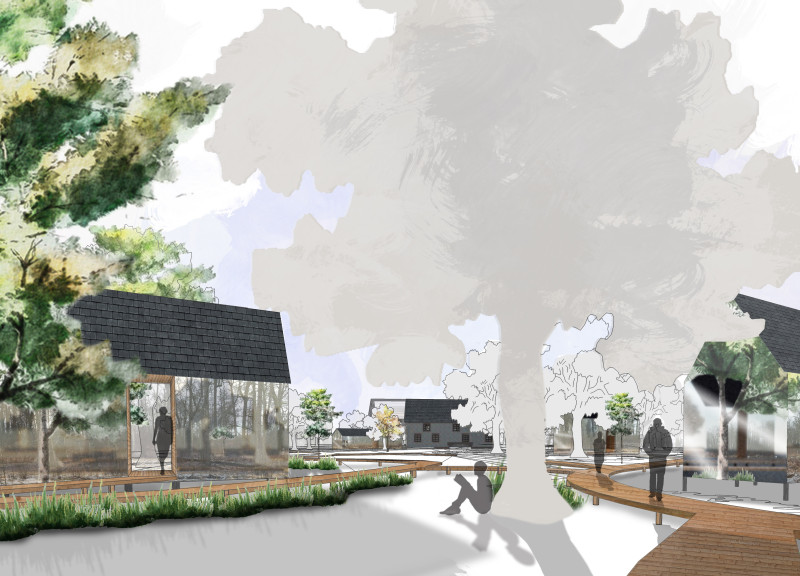5 key facts about this project
The Upe Miera Peace River Retreat Centre is a carefully planned space set within a natural landscape, designed to support spiritual practices and well-being. The retreat consists of various interconnected pods, each serving a specific purpose. This arrangement allows guests to connect deeply with nature and facilitates personal reflection and rejuvenation. The overall design aims to create a tranquil environment while maintaining a sense of harmony with the surroundings.
Reflective Surfaces
The pods feature a reflective finish that allows them to interact with the landscape. This design choice helps the structures blend in with their environment and enhances the play of light throughout the day. Each pod is positioned to capture the sun's rays and offer views of the trees and water, contributing to a calming atmosphere essential for meditation and relaxation.
Pathway System
A series of pathways connects the pods, resembling the winding flow of the nearby river. This layout encourages movement through the retreat, guiding guests from one space to another. The paths promote both social interaction and solitude, allowing individuals to choose how they engage with the environment and with each other. This balance of private and communal spaces enhances the overall experience of the retreat.
Sustainable Practices
Sustainability is at the core of the retreat's design. An internal hydro turbine generates renewable energy to power the facility. Rainwater is collected and filtered through natural pottery systems, providing water for drinking and irrigation. Additionally, compost toilets are used to minimize water waste, converting refuse into gas for cooking. These choices highlight a commitment to environmental responsibility while serving the needs of the guests.
Grounded Community Space
The Stone Barn serves as the central gathering point within the retreat. Its stone floor creates a solid connection to the earth, reinforcing the building's role as a place for communal activities. This space fosters collaboration and social engagement among guests, emphasizing the importance of community while maintaining a connection to the natural world. Here, individuals can come together, share experiences, and cultivate a sense of belonging.


























